
Làm thế nào để thành lập công ty môi giới chứng khoán vào năm 2024?
Mục lục
Việc thành lập một công ty môi giới chứng khoán vào năm 2024, đặc biệt là công ty tập trung vào CFD cổ phiếu, đòi hỏi phải điều hướng một loạt các bước chiến lược và đáp ứng các yêu cầu pháp lý. Hướng dẫn này cung cấp một lộ trình chi tiết, từ việc tìm hiểu bối cảnh thị trường đến việc thiết lập một nền tảng vững chắc, đảm bảo công ty môi giới của bạn có vị thế tốt để thành công.
Hợp đồng chênh lệch (CFD) – Sản phẩm tài chính phái sinh cho phép các nhà giao dịch đầu cơ vào biến động giá của nhiều loại tài sản khác nhau, chẳng hạn như cổ phiếu, hàng hóa hoặc tiền tệ, mà không cần sở hữu tài sản cơ sở.
Hiểu về CFD cổ phiếu
Hợp đồng chênh lệch (CFD) cổ phiếu là một loại hình phái sinh tài chính cho phép nhà giao dịch đầu cơ dựa trên biến động giá cổ phiếu mà không cần sở hữu tài sản cơ sở. Thay vì mua cổ phiếu trực tiếp, nhà giao dịch ký hợp đồng với một nhà môi giới để trao đổi chênh lệch giá cổ phiếu từ khi hợp đồng được mở đến khi đóng. Hình thức này mang lại nhiều lợi thế và cân nhắc, khiến nó trở thành một lựa chọn hấp dẫn cho cả nhà giao dịch và nhà môi giới.
Tuân thủ quy định
Việc nắm rõ bối cảnh pháp lý là bước đầu tiên quan trọng trong quá trình thành lập công ty môi giới của bạn. Việc tuân thủ các quy định liên quan là điều cần thiết cho hoạt động pháp lý, xây dựng niềm tin của khách hàng và duy trì danh tiếng vững chắc. Dưới đây là cách tiếp cận tuân thủ pháp lý hiệu quả:
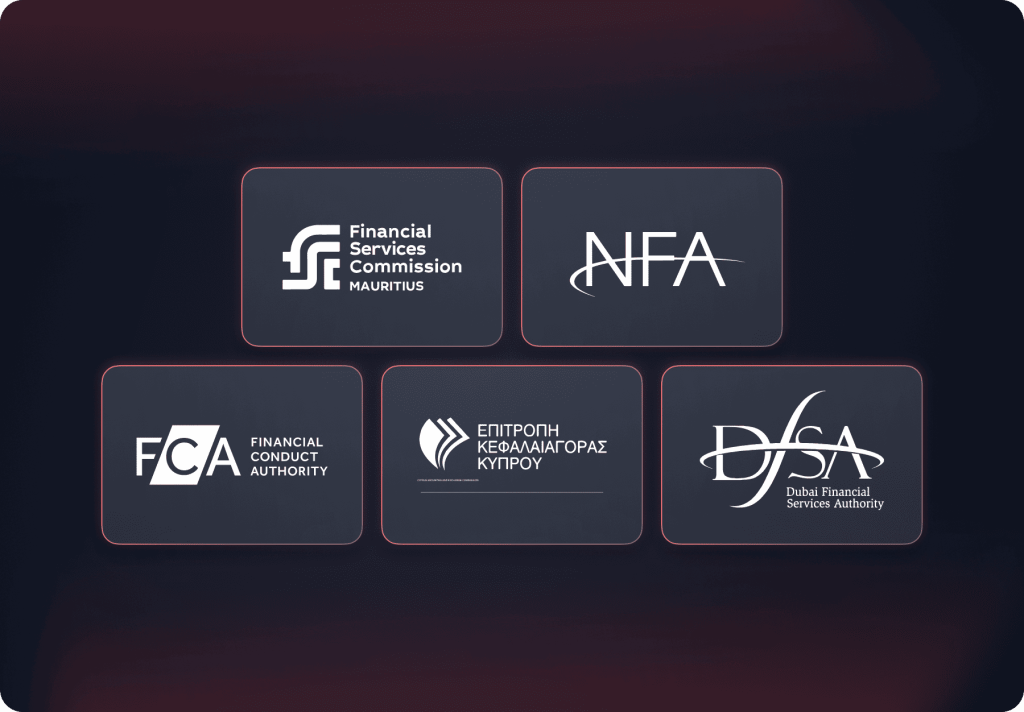
Cấp phép và Hoạt động Đa khu vực
Xác định các giấy phép cụ thể bạn cần dựa trên khu vực hoạt động của mình. Mỗi khu vực pháp lý có cơ quan quản lý và yêu cầu cấp phép riêng. Ví dụ: bạn phải tuân thủ Ủy ban Chứng khoán và Giao dịch (SEC) tại Hoa Kỳ. Đồng thời, tại Vương quốc Anh, Cơ quan quản lý tài chính (FCA) giám sát hoạt động môi giới. Cơ quan Chứng khoán và Thị trường Châu Âu (ESMA) đóng vai trò quan trọng trong Liên minh Châu Âu. Nếu bạn dự định hoạt động ở nhiều khu vực, hãy chuẩn bị tuân thủ các quy định của từng thị trường. Điều này thường liên quan đến việc xin nhiều giấy phép và tuân thủ các tiêu chuẩn khác nhau, chẳng hạn như các nghĩa vụ báo cáo khác nhau, tiêu chuẩn về mức độ an toàn vốn và quy tắc ứng xử.
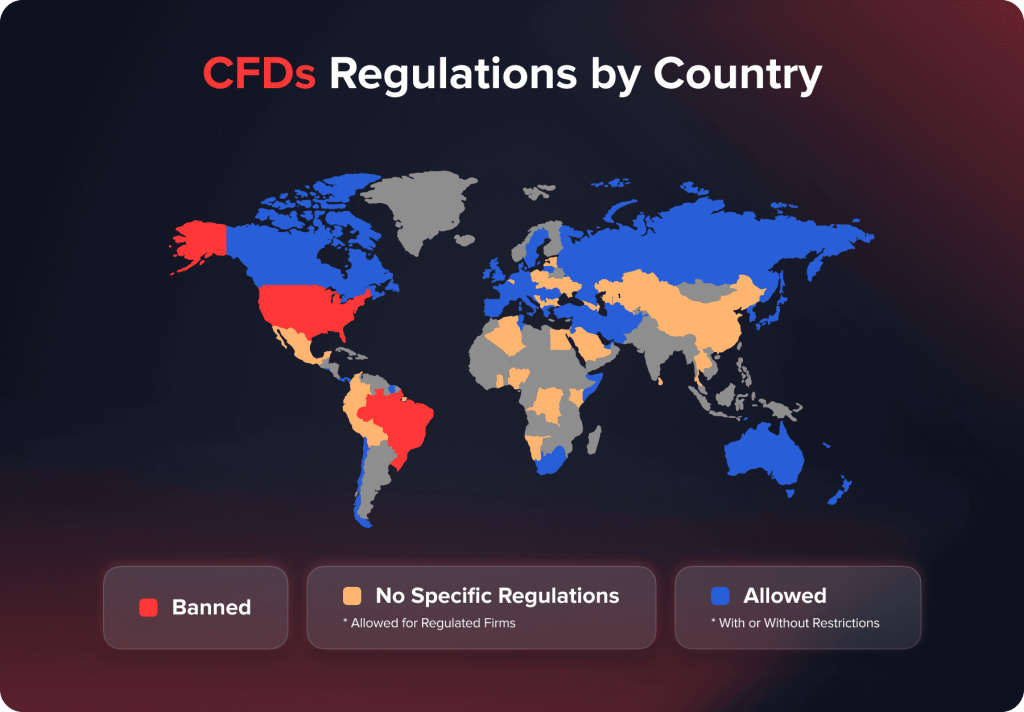
Chống rửa tiền và Hiểu rõ khách hàng của bạn
Triển khai AML mạnh mẽ và Thủ tục KYC để ngăn chặn các tội phạm tài chính như rửa tiền và gian lận. Điều này bao gồm việc xác minh danh tính khách hàng bằng tài liệu đáng tin cậy, giám sát các giao dịch phát hiện hoạt động đáng ngờ và báo cáo bất kỳ hoạt động đáng ngờ nào cho các cơ quan chức năng. Để tự động hóa và hợp lý hóa các quy trình tuân thủ này, hãy sử dụng các giải pháp phần mềm tiên tiến, đảm bảo kiểm tra toàn diện và hiệu quả.
You may also like

Luật bảo vệ dữ liệu và quyền riêng tư
Đảm bảo tuân thủ các quy định về bảo vệ dữ liệu như Quy định chung về bảo vệ dữ liệu (GDPR) ở EU và Đạo luật bảo mật người tiêu dùng California (CCPA) tại Hoa Kỳ. Các luật này yêu cầu các hướng dẫn nghiêm ngặt về thu thập, lưu trữ và sử dụng dữ liệu. Hãy triển khai các chính sách bảo vệ dữ liệu nghiêm ngặt và tiến hành kiểm tra thường xuyên để tránh các hình phạt nghiêm khắc và duy trì niềm tin của khách hàng. Các biện pháp bảo vệ dữ liệu mạnh mẽ là rất quan trọng để bảo vệ thông tin khách hàng và duy trì danh tiếng của công ty bạn.
Yêu cầu về vốn và ổn định tài chính
Hiểu rõ và đáp ứng các yêu cầu về vốn do các cơ quan quản lý đặt ra. Các yêu cầu này đảm bảo công ty của bạn có thể đáp ứng các nghĩa vụ tài chính và duy trì khả năng thanh toán trong điều kiện thị trường bất lợi. Duy trì dự trữ vốn đầy đủ là điều cần thiết để bảo vệ khách hàng và sự ổn định tài chính của công ty. Thường xuyên xem xét và điều chỉnh dự trữ vốn để phù hợp với các tiêu chuẩn quản lý và điều kiện thị trường.
Nhóm Kiểm toán, Báo cáo và Tuân thủ Thường xuyên
Tuân thủ quy định bao gồm kiểm toán thường xuyên và báo cáo cho các cơ quan chức năng. Điều này bao gồm kiểm toán tài chính để rà soát báo cáo tài chính, kiểm toán tuân thủ để đảm bảo tuân thủ tất cả các tiêu chuẩn quy định, và kiểm toán hoạt động để rà soát các quy trình của bạn. Hãy nộp báo cáo chính xác và kịp thời để tránh bị phạt và tăng cường giám sát theo quy định. Hãy thành lập một đội ngũ pháp lý và tuân thủ chuyên trách, chịu trách nhiệm cập nhật những thay đổi mới nhất về quy định, triển khai các quy trình tuân thủ và đảm bảo tất cả các hoạt động đều đáp ứng các tiêu chuẩn bắt buộc. Việc đào tạo và phát triển thường xuyên cho đội ngũ này là rất quan trọng để điều hướng hiệu quả bối cảnh pháp lý luôn biến động.
Phát triển kế hoạch kinh doanh
Việc xây dựng một kế hoạch kinh doanh toàn diện là điều cần thiết cho sự ra mắt và phát triển thành công của công ty môi giới chứng khoán của bạn. Dưới đây là cách xây dựng một kế hoạch kinh doanh hiệu quả:
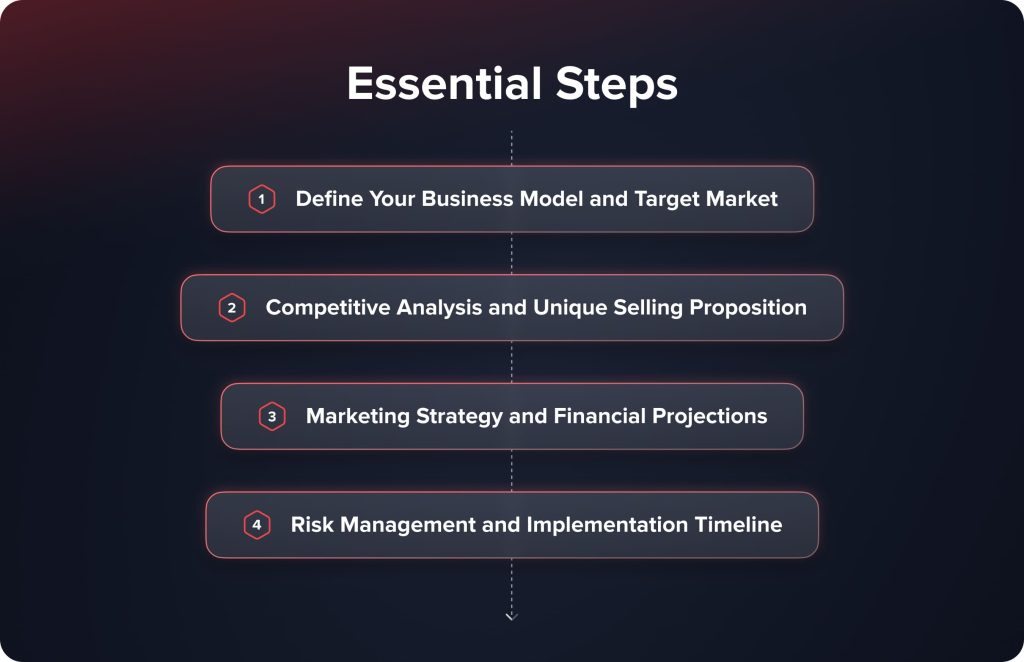
Xác định mô hình kinh doanh và thị trường mục tiêu của bạn
Quyết định xem bạn sẽ cung cấp dịch vụ môi giới trọn gói hay chiết khấu và phác thảo các loại tài khoản và sản phẩm bạn sẽ cung cấp, chẳng hạn như cổ phiếu, hợp đồng chênh lệch CFD cổ phiếu và các công cụ tài chính khác. Tiến hành nghiên cứu thị trường để xác định và hiểu rõ thị trường mục tiêu của bạn, dù đó là nhà đầu tư cá nhân, khách hàng tổ chức hay cả hai. Điều này giúp điều chỉnh dịch vụ và chiến lược tiếp thị của bạn để thu hút đúng đối tượng khách hàng.
Phân tích cạnh tranh và đề xuất bán hàng độc đáo
Phân tích đối thủ cạnh tranh để hiểu rõ điểm mạnh, điểm yếu, mô hình kinh doanh, thị trường mục tiêu, chiến lược định giá và dịch vụ của họ. Xác định những khoảng trống thị trường và cơ hội để tạo sự khác biệt cho công ty môi giới của bạn. Xác định đề xuất bán hàng độc đáo (USP) để tạo sự khác biệt, chẳng hạn như công nghệ vượt trội, dịch vụ khách hàng xuất sắc hoặc các công cụ giao dịch tiên tiến.
Chiến lược tiếp thị và dự báo tài chính
Xây dựng chiến lược tiếp thị mạnh mẽ bằng cách sử dụng các kỹ thuật số (SEO, tiếp thị nội dung, mạng xã hội) và các phương pháp truyền thống (quảng cáo in ấn, sự kiện). Bạn đặt mục tiêu xây dựng nhận diện thương hiệu, tạo khách hàng tiềm năng và chuyển đổi khách hàng tiềm năng thành khách hàng thực sự. Chuẩn bị các dự báo tài chính, bao gồm doanh thu, chi phí và lợi nhuận trong ba đến năm năm đầu tiên. Phân tích các nguồn doanh thu và ước tính chi phí hoạt động để đánh giá khả năng tài chính và thu hút nhà đầu tư.
Quản lý rủi ro và tiến độ triển khai
Thiết lập một khuôn khổ quản lý rủi ro Xác định và giảm thiểu các rủi ro như biến động thị trường, rủi ro vận hành, thay đổi quy định và các mối đe dọa an ninh mạng. Xây dựng các chiến lược như các biện pháp an ninh mạng mạnh mẽ và duy trì dự trữ vốn đầy đủ. Lên kế hoạch triển khai với các mốc quan trọng, bao gồm xin giấy phép, thiết lập công nghệ, tuyển dụng nhân sự và phát triển tài liệu tiếp thị. Điều này đảm bảo tất cả các bước được hoàn thành đúng tiến độ để ra mắt thành công.
Nền tảng công nghệ và giao dịch
Đầu tư vào công nghệ tiên tiến là yếu tố then chốt cho sự thành công của công ty môi giới của bạn. Một nền tảng giao dịch mạnh mẽ và đáng tin cậy là xương sống cho hoạt động của bạn, tác động đến mọi thứ, từ sự hài lòng của khách hàng đến hiệu quả hoạt động. Dưới đây là cách đảm bảo bạn lựa chọn và triển khai công nghệ tốt nhất cho công ty môi giới của mình.
You may also like

Lựa chọn nền tảng và thực hiện giao dịch
Hãy chọn một nền tảng giao dịch hỗ trợ đa dạng các loại tài sản, bao gồm cổ phiếu, CFD cổ phiếu và các công cụ tài chính khác. Đảm bảo nền tảng đủ linh hoạt để đáp ứng nhu cầu đa dạng của khách hàng, từ nhà giao dịch cá nhân đến nhà đầu tư tổ chức. Hãy tìm một nền tảng thân thiện với người dùng, có giao diện trực quan, giúp khách hàng dễ dàng điều hướng và thực hiện giao dịch. Ngoài ra, hãy đảm bảo nền tảng cung cấp khả năng thực hiện giao dịch liền mạch với độ trễ tối thiểu, xử lý lệnh nhanh chóng và chính xác, đặc biệt là trong những thị trường biến động.
Công cụ nâng cao và dữ liệu thời gian thực
Các công cụ biểu đồ tiên tiến rất cần thiết để cung cấp cho nhà giao dịch những thông tin chuyên sâu cần thiết để đưa ra quyết định sáng suốt. Hãy đảm bảo nền tảng của bạn cung cấp đa dạng các chỉ báo kỹ thuật, công cụ vẽ và loại biểu đồ. Việc truy cập dữ liệu thị trường theo thời gian thực là rất quan trọng, vì vậy hãy tích hợp các nguồn cấp dữ liệu theo thời gian thực đáng tin cậy, cung cấp thông tin cập nhật về giá cổ phiếu, diễn biến thị trường và tin tức tài chính. Các tính năng này cho phép nhà giao dịch phân tích xu hướng thị trường và phát triển các chiến lược giao dịch hiệu quả.
Quản lý An ninh và Rủi ro
Triển khai các tính năng bảo mật mạnh mẽ để bảo vệ dữ liệu và tiền của khách hàng. Điều này bao gồm xác thực hai yếu tố (2FA), mã hóa, chứng chỉ lớp cổng bảo mật (SSL) và kiểm tra bảo mật thường xuyên. Hãy hợp tác với một nhà cung cấp công nghệ uy tín để đảm bảo nền tảng của bạn đáp ứng các tiêu chuẩn bảo mật cao nhất. Ngoài ra, nền tảng của bạn nên cung cấp các công cụ quản lý rủi ro hiệu quả, chẳng hạn như lệnh dừng lỗ, lệnh chốt lời, theo dõi ký quỹ và các công cụ đánh giá rủi ro, để giúp nhà giao dịch quản lý vị thế và giảm thiểu tổn thất tiềm ẩn.
Giao dịch và tích hợp di động
Với việc sử dụng thiết bị di động để giao dịch ngày càng tăng, việc cung cấp một nền tảng thân thiện với thiết bị di động là điều cần thiết. Hãy đảm bảo nền tảng giao dịch của bạn tương thích với cả thiết bị Android và iOS, mang lại trải nghiệm giao dịch liền mạch trên mọi thiết bị. Khả năng giao dịch trên thiết bị di động cho phép khách hàng theo dõi và thực hiện giao dịch mọi lúc mọi nơi, nâng cao tính linh hoạt và sự tương tác. Việc tích hợp nền tảng giao dịch của bạn với các dịch vụ của bên thứ ba có thể nâng cao chức năng và mang lại giá trị gia tăng cho khách hàng. Hãy cân nhắc hợp tác với các nhà cung cấp tin tức tài chính, công cụ phân tích và các dịch vụ công nghệ tài chính khác để cung cấp những thông tin chuyên sâu và dịch vụ độc đáo.
Khả năng mở rộng, tùy chỉnh và hỗ trợ
Khi công ty môi giới của bạn phát triển, nền tảng giao dịch của bạn cũng cần có khả năng mở rộng quy mô theo doanh nghiệp. Hãy chọn một nền tảng có khả năng mở rộng để đáp ứng số lượng người dùng và giao dịch ngày càng tăng. Khả năng tùy chỉnh nền tảng để đáp ứng các nhu cầu và sở thích cụ thể có thể mang lại lợi thế cạnh tranh và cải thiện sự hài lòng của khách hàng. Hãy đảm bảo nhà cung cấp công nghệ của bạn cung cấp hỗ trợ và bảo trì liên tục cho nền tảng giao dịch. Việc cập nhật thường xuyên, hỗ trợ kỹ thuật và giải quyết sự cố nhanh chóng là rất quan trọng để duy trì hiệu suất và độ tin cậy của nền tảng, giảm thiểu thời gian ngừng hoạt động và gián đoạn cho khách hàng của bạn.
Yêu cầu về tài trợ và vốn
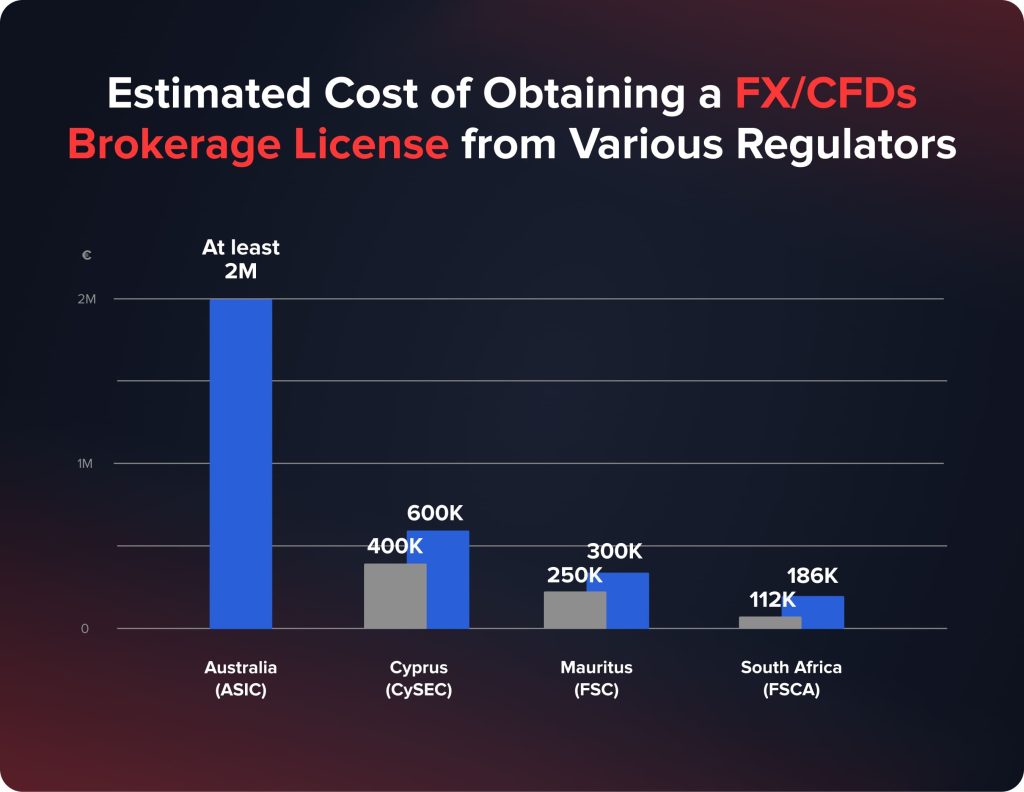
Việc đảm bảo đủ vốn là yếu tố then chốt để thành lập và duy trì một công ty môi giới thành công. Nguồn vốn đầy đủ đảm bảo bạn có thể trang trải mọi chi phí cần thiết, tuân thủ các yêu cầu pháp lý và đầu tư vào các cơ hội tăng trưởng. Dưới đây là một phương pháp toàn diện để hiểu và đảm bảo các yêu cầu về vốn và nguồn vốn cho công ty môi giới của bạn:
Chi phí thiết lập ban đầu và quy định
Việc thành lập một công ty môi giới đòi hỏi chi phí thiết lập ban đầu đáng kể, bao gồm phí pháp lý, xin giấy phép, thiết lập văn phòng, mua sắm thiết bị và tuyển dụng nhân viên ban đầu. Việc ước tính chính xác các chi phí này và lập kế hoạch cho chúng trong ngân sách của bạn là điều cần thiết để tránh thâm hụt tài chính trong giai đoạn đầu. Phí quản lý có thể rất lớn, đặc biệt nếu bạn dự định hoạt động tại nhiều khu vực pháp lý. Mỗi cơ quan quản lý có cơ cấu phí riêng cho việc cấp phép và tuân thủ, bao gồm phí nộp đơn, phí giám sát liên tục và phí kiểm toán theo quy định. Hãy phân bổ đủ ngân sách để trang trải các chi phí này nhằm duy trì sự tuân thủ và tránh các vấn đề pháp lý.
Công nghệ và Chi phí Hoạt động
Đầu tư vào cơ sở hạ tầng công nghệ mạnh mẽ là yếu tố then chốt cho sự thành công của dịch vụ môi giới của bạn. Điều này bao gồm chi phí mua sắm và duy trì một nền tảng giao dịch đáng tin cậy, tích hợp nguồn cấp dữ liệu theo thời gian thực, triển khai các biện pháp bảo mật và đảm bảo hỗ trợ CNTT. Chi phí công nghệ có thể cao, nhưng chúng cần thiết để mang đến cho khách hàng trải nghiệm giao dịch liền mạch và an toàn. Chi phí hoạt động chung bao gồm các chi phí thường xuyên như lương, tiền thuê văn phòng, tiện ích và chi phí hành chính. Ngoài ra, ngân sách dành cho phát triển chuyên môn liên tục, phúc lợi nhân viên và quỹ dự phòng cho các chi phí bất ngờ. Việc duy trì một ngân sách chi tiết và thực tế cho chi phí hoạt động chung đảm bảo hoạt động hàng ngày diễn ra suôn sẻ.
Nguồn tài trợ và quản lý dòng tiền
Khám phá các lựa chọn tài trợ khác nhau để đảm bảo nguồn vốn cần thiết cho hoạt động môi giới của bạn. Quản lý dòng tiền hiệu quả là yếu tố then chốt để duy trì hoạt động môi giới của bạn. Hãy theo dõi dòng tiền thường xuyên để đảm bảo bạn có đủ thanh khoản để trang trải chi phí hoạt động và đầu tư vào các cơ hội tăng trưởng. Thực hiện các biện pháp kiểm soát tài chính và kế toán chặt chẽ để duy trì dòng tiền lành mạnh và tránh những rủi ro tài chính. Thường xuyên xem xét và cập nhật các kế hoạch tài chính và ngân sách của bạn để phản ánh những thay đổi trong thị trường và hoạt động kinh doanh. Việc theo dõi tài chính liên tục cho phép bạn xác định sớm các vấn đề tiềm ẩn và đưa ra quyết định sáng suốt để ổn định hoạt động môi giới của mình.
Nhân viên và Hoạt động
Tuyển dụng nhân viên giàu kinh nghiệm và kỹ năng là yếu tố then chốt để cung cấp dịch vụ chất lượng cao và duy trì hoạt động trơn tru tại công ty môi giới của bạn. Từ các nhân viên tuân thủ, chuyên viên phân tích tài chính, đại diện hỗ trợ khách hàng và chuyên gia CNTT, việc tập hợp một đội ngũ có năng lực sẽ hỗ trợ sự thành công của công ty môi giới. Dưới đây là cách tiếp cận hiệu quả về nhân sự và vận hành:
Tuyển dụng nhân sự chủ chốt
Xác định và tuyển dụng cho các vị trí thiết yếu như nhân viên tuân thủ, chuyên viên phân tích tài chính, đại diện hỗ trợ khách hàng, chuyên gia CNTT, chuyên gia tiếp thị và chuyên gia quản lý rủi ro. Mỗi vị trí đều yêu cầu chuyên môn và kinh nghiệm cụ thể để đảm bảo hoạt động hiệu quả.
- Cán bộ tuân thủ: Đảm bảo tuân thủ mọi yêu cầu theo quy định và chính sách nội bộ, thực hiện các thủ tục tuân thủ, tiến hành kiểm toán và cập nhật những thay đổi về quy định.
- Nhà phân tích tài chính: Cung cấp dịch vụ phân tích thị trường, tư vấn đầu tư và quản lý danh mục đầu tư, giúp khách hàng đưa ra quyết định giao dịch sáng suốt.
- Đại diện hỗ trợ khách hàng: Cung cấp dịch vụ khách hàng đặc biệt, giải quyết nhanh chóng các thắc mắc của khách hàng và giải quyết các vấn đề.
- Chuyên gia CNTT: Duy trì và quản lý cơ sở hạ tầng công nghệ của công ty, đảm bảo nền tảng giao dịch hoạt động trơn tru và an toàn.
- Chuyên gia tiếp thị: Phát triển và thực hiện các chiến lược tiếp thị để thu hút và giữ chân khách hàng, sử dụng tiếp thị kỹ thuật số, sáng tạo nội dung và xây dựng thương hiệu.
- Chuyên gia quản lý rủi ro: Xác định, đánh giá và giảm thiểu rủi ro liên quan đến các yếu tố thị trường, tín dụng, hoạt động và thanh khoản.
Thiết lập Quy trình vận hành
Xây dựng các quy trình vận hành rõ ràng và toàn diện để định hướng các hoạt động hàng ngày và đảm bảo tính nhất quán. Ghi chép các quy trình này vào sổ tay vận hành, bao gồm tất cả các khía cạnh chức năng của công ty môi giới, bao gồm quy trình giao dịch, tiếp nhận khách hàng, kiểm tra tuân thủ và các giao thức hỗ trợ khách hàng.
Phác thảo các bước thực hiện giao dịch, từ đặt lệnh đến thanh toán, đảm bảo tất cả các hoạt động giao dịch được giám sát và ghi lại để đảm bảo tính minh bạch và tuân thủ. Thiết lập quy trình hợp lý để tiếp nhận khách hàng mới, kiểm tra để xác minh danh tính khách hàng và đánh giá hồ sơ rủi ro của họ. Thực hiện kiểm tra tuân thủ thường xuyên thông qua kiểm toán định kỳ, giám sát giao dịch và báo cáo các hoạt động đáng ngờ. Xây dựng các giao thức xử lý yêu cầu, khiếu nại và phản hồi của khách hàng, đảm bảo nhân viên hỗ trợ khách hàng được đào tạo để cung cấp dịch vụ hiệu quả và lịch sự.
Thực hiện Kiểm soát Nội bộ
Triển khai các biện pháp kiểm soát nội bộ chặt chẽ nhằm nâng cao hiệu quả và đảm bảo tuân thủ quy định, ngăn ngừa sai sót, gian lận và vi phạm. Điều này bao gồm việc phân công nhiệm vụ, phân chia trách nhiệm giữa các nhân viên khác nhau nhằm giảm thiểu rủi ro sai sót và gian lận. Thực hiện kiểm toán nội bộ thường xuyên để rà soát quy trình, xác định điểm yếu và đảm bảo tuân thủ các chính sách và quy định. Thiết lập hệ thống giám sát và báo cáo hoạt động liên tục, bao gồm giám sát hoạt động giao dịch theo thời gian thực, báo cáo tài chính định kỳ và theo dõi tuân thủ.
Đào tạo và Phát triển
Đầu tư vào đào tạo và phát triển liên tục cho nhân viên. Việc cập nhật cho đội ngũ của bạn về các xu hướng mới nhất trong ngành, những thay đổi về quy định và tiến bộ công nghệ là rất quan trọng để duy trì các tiêu chuẩn cao về dịch vụ và tuân thủ. Khuyến khích nhân viên đạt được các chứng chỉ liên quan trong ngành, chẳng hạn như chứng chỉ Chuyên viên Phân tích Tài chính Công chứng (CFA) dành cho chuyên viên phân tích tài chính hoặc chứng chỉ Chuyên gia Chống Rửa tiền (CAMS) dành cho nhân viên tuân thủ. Tạo cơ hội phát triển chuyên môn thông qua các hội thảo, hội nghị chuyên đề và khóa học trực tuyến, giúp nhân viên cập nhật các phương pháp hay nhất và nâng cao kỹ năng. Đảm bảo các chuyên gia CNTT và nhân viên liên quan khác được đào tạo về công nghệ mới nhất và các biện pháp an ninh mạng để bảo vệ cơ sở hạ tầng và dữ liệu khách hàng của công ty.
Lợi ích của việc lựa chọn giải pháp nhãn trắng cho công ty môi giới của bạn
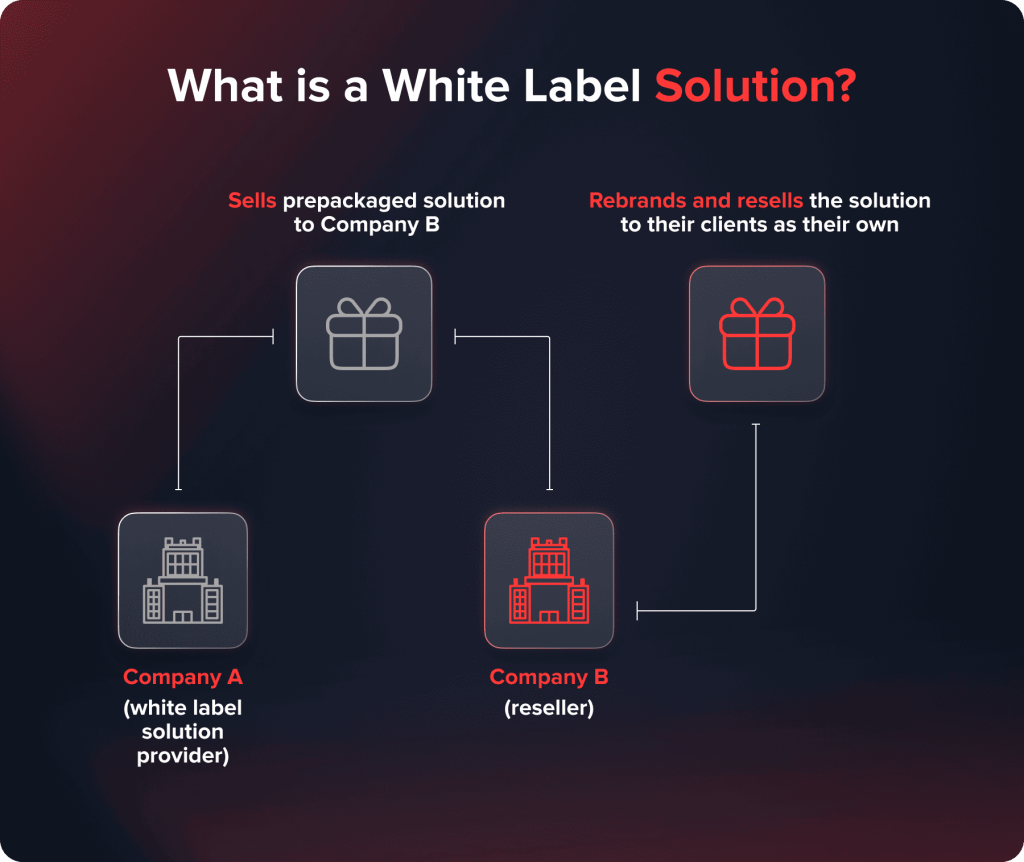
Lựa chọn một giải pháp nhãn trắng có thể là một bước đi chiến lược khi thành lập công ty môi giới. Các giải pháp nhãn trắng giúp giảm đáng kể chi phí thiết lập ban đầu bằng cách cung cấp một nền tảng sẵn sàng sử dụng, cho phép bạn phân bổ nguồn lực hiệu quả hơn. Các nhà cung cấp này cung cấp các nền tảng được xây dựng sẵn, đáng tin cậy, có thể triển khai nhanh chóng, cho phép bạn bắt đầu hoạt động và tạo doanh thu nhanh hơn. Các giải pháp này được trang bị công nghệ và tính năng tiên tiến, bao gồm các công cụ giao dịch tiên tiến, nguồn cấp dữ liệu theo thời gian thực và các biện pháp bảo mật mạnh mẽ, đảm bảo trải nghiệm giao dịch chất lượng cao cho khách hàng của bạn.
Nhiều nhà cung cấp nhãn trắng cung cấp các giải pháp đã tuân thủ các tiêu chuẩn quy định quan trọng, giúp đơn giản hóa quy trình tuân thủ. Ngoài ra, bạn có thể tùy chỉnh nền tảng để phản ánh bản sắc thương hiệu của mình, giúp xây dựng nhận diện thương hiệu và lòng tin nơi khách hàng. Với các khía cạnh kỹ thuật và quy định được nhà cung cấp xử lý, bạn có thể tập trung vào tiếp thị, thu hút khách hàng và dịch vụ khách hàng.
Các giải pháp nhãn trắng được thiết kế để mở rộng quy mô cùng với doanh nghiệp của bạn, đáp ứng khối lượng giao dịch tăng lên và các tính năng bổ sung khi cơ sở khách hàng của bạn phát triển. Các nhà cung cấp cũng cung cấp hỗ trợ và bảo trì liên tục, đảm bảo nền tảng luôn được cập nhật và bảo mật. Bằng cách tận dụng giải pháp nhãn trắng, bạn có thể khởi động dịch vụ môi giới của mình một cách hiệu quả, mang đến một môi trường giao dịch chuyên nghiệp và cạnh tranh ngay từ đầu. Cách tiếp cận này giúp giảm thiểu rào cản gia nhập và định vị công ty của bạn để thành công lâu dài trên thị trường tài chính.
Phần kết luận
Việc thành lập một công ty môi giới chứng khoán vào năm 2024 đòi hỏi phải lập kế hoạch tỉ mỉ, tuân thủ quy định và thực thi chiến lược. Bạn có thể xây dựng một công ty môi giới thành công bằng cách am hiểu thị trường, đầu tư vào công nghệ và triển khai các biện pháp quản lý rủi ro hiệu quả. Với phương pháp tiếp cận đúng đắn và đối tác nhãn trắng phù hợp, công ty của bạn có thể phát triển mạnh mẽ trong bối cảnh cạnh tranh, cung cấp các dịch vụ giá trị cho các nhà giao dịch và nhà đầu tư trên toàn thế giới.
Đã cập nhật:
19 tháng 12, 2024
9 tháng 2, 2026
What Is a Trading Halt? Why Stocks Stop Trading and What It Means for You => Hủy giao dịch là gì? Tại sao cổ phiếu lại ngừng giao dịch và điều đó có nghĩa gì đối với bạn
Hướng dẫn này sẽ đưa bạn qua CPA so với RevShare (và các sự kết hợp hỗn hợp), giải thích ý nghĩa thực sự của chúng đối với doanh nghiệp môi giới của bạn.



